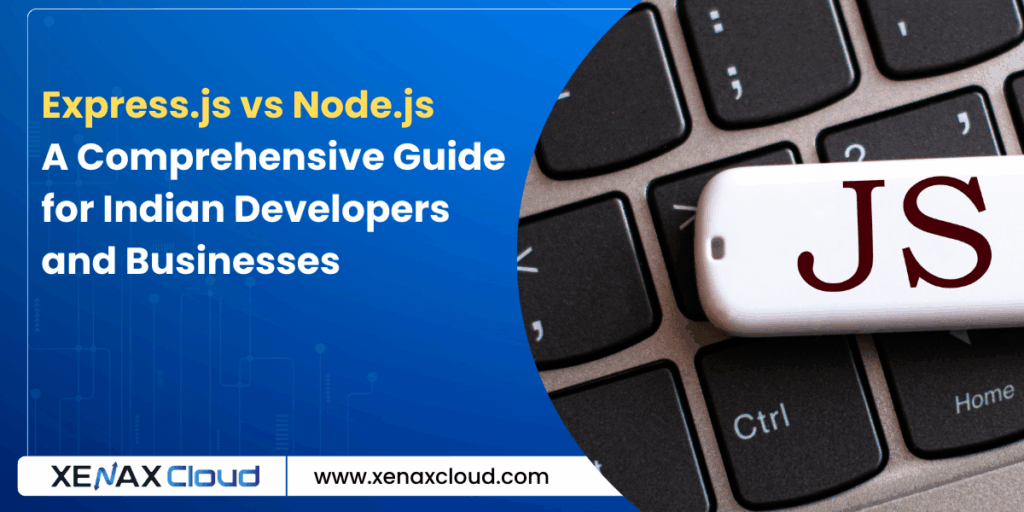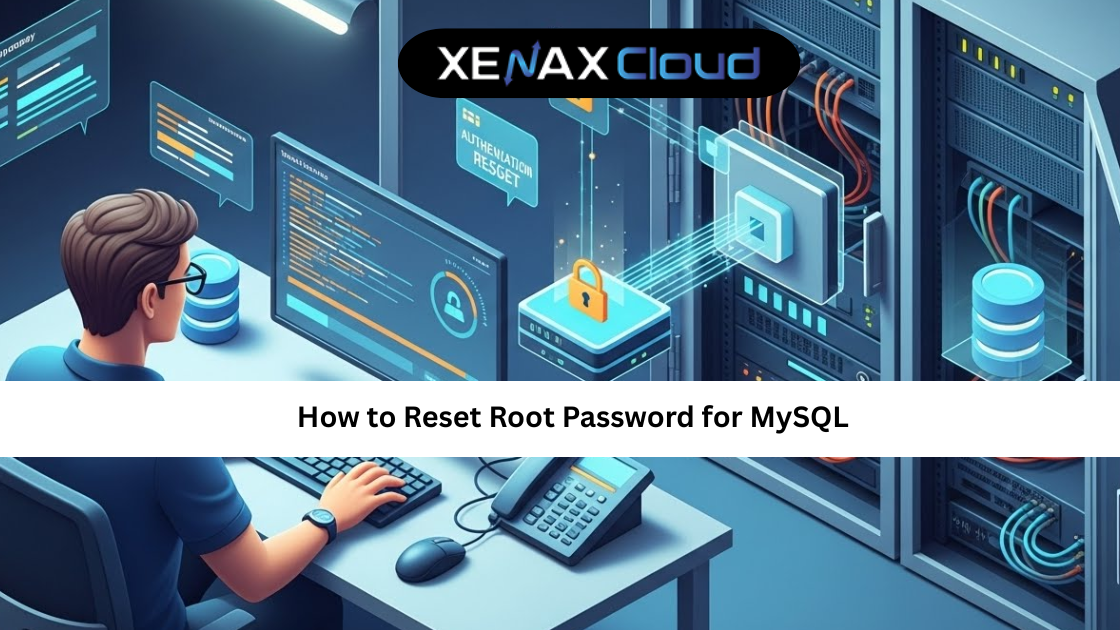Hey, Indian developers and business owners! Whether you’re building a fintech app in Bengaluru, an e-commerce platform in Mumbai, or a startup MVP in Hyderabad, choosing the right tech stack is critical. India’s digital economy is booming—NASSCOM predicts over 1.5 million developers by 2025—and web development tools like Node.js, Express.js, and Django are at the heart of this growth. But when it comes to Express.js vs Node.js, what’s the real difference, and how do they stack up against frameworks like Django?
This choice isn’t just technical; it’s about speed, scalability, and cost-efficiency in a market where low-latency apps and data compliance (like the DPDP Act) are non-negotiable. Whether you’re a solo developer or a startup scaling to millions of users, understanding these tools can make or break your project. In this 3000-word guide, we’ll dive into the Express.js vs Node.js debate, compare them with Django, and show how XenaxCloud’s India-based hosting solutions—like VPS servers and dedicated servers—can power your apps. Let’s get coding!
Understanding Node.js, Express.js, and Django
Before we compare, let’s clarify what these technologies are and how they fit into web development.
What is Node.js?
Node.js is a runtime environment that lets you run JavaScript outside the browser, on the server side. Built on Chrome’s V8 engine, it’s fast, asynchronous, and perfect for real-time apps like chat or live tracking.
- Why It Matters: Enables full-stack JavaScript, reducing the learning curve for Indian developers.
- For India: Ideal for startups building scalable apps on XenaxCloud’s shared hosting.
What is Express.js?
Express.js is a minimalist web framework built on Node.js. It simplifies server-side development by providing tools for routing, middleware, and API creation. Think of Node.js as the engine and Express.js as the steering wheel.
- Why It Matters: Speeds up development with pre-built features.
- For India: Perfect for rapid prototyping on XenaxCloud’s VPS.
What is Django?
Django is a high-level Python web framework focused on rapid development and security. Unlike Express.js, which runs on Node.js, Django is a standalone framework using Python, ideal for complex, database-driven apps.
- Why It Matters: Offers built-in features like authentication and admin panels.
- For India: Suits enterprises needing robust backends, hosted on dedicated servers.
Express.js vs Node.js: Breaking Down the Differences
The Express.js vs Node.js debate is a bit of a misnomer—Express.js is built on Node.js, so they’re complementary, not competitors. Let’s clarify.
Node.js: The Foundation
Node.js is a runtime, not a framework. It provides the environment to execute JavaScript server-side, handling tasks like file I/O, networking, and HTTP servers. Without additional frameworks, you’d write raw Node.js code, which can be tedious for complex apps.
- Key Features:
- Event-driven, non-blocking I/O for high performance.
- Supports real-time apps (e.g., live streaming).
- Huge npm ecosystem for libraries.
- Cross-platform, runs on XenaxCloud’s VPS.
- Use Case: Building a basic HTTP server or real-time app from scratch.
Express.js: The Framework
Express.js simplifies Node.js development by adding structure. It handles routing, middleware, and HTTP requests, making it easier to build APIs or web apps.
- Key Features:
- Simplified routing (e.g.,
app.get(‘/’, …)). - Middleware support for tasks like authentication or logging.
- Lightweight and flexible for microservices.
- Integrates seamlessly with XenaxCloud’s Indian RDP for management.
- Simplified routing (e.g.,
- Use Case: Creating RESTful APIs or web servers quickly.
Key Differences
- Scope:
- Node.js: A runtime environment for JavaScript.
- Express.js: A framework on top of Node.js for web development.
- Ease of Use:
- Node.js: Requires manual coding for HTTP handling.
- Express.js: Provides pre-built tools for faster development.
- Flexibility:
- Node.js: Highly customizable but complex.
- Express.js: Streamlined for web apps but less low-level control.
- Performance:
- Both leverage Node.js’s speed, ideal for low-latency apps on XenaxCloud’s dedicated servers.
For Indian developers, Express.js is the go-to for quick app development, while Node.js alone suits niche, low-level projects.
Node.js vs Django: A Broader Comparison
While Express.js builds on Node.js, Django is a Python-based alternative. Let’s compare Node.js (with or without Express.js) to Django.
Node.js (with Express.js)
- Language: JavaScript, familiar to front-end devs.
- Performance: Asynchronous, excels in real-time apps (e.g., live trading platforms).
- Learning Curve: Moderate, especially with Express.js’s simplicity.
- Features: Minimalist; add libraries as needed via npm.
- Use Case: Real-time apps, APIs, or microservices for startups on shared hosting.
Django
- Language: Python, known for readability and versatility.
- Performance: Synchronous by default, slower for real-time but robust for complex apps.
- Learning Curve: Steeper for beginners but feature-rich.
- Features: Built-in ORM, authentication, and admin panel.
- Use Case: Database-heavy apps like CMS or e-commerce, hosted on dedicated servers.
When to Choose Node.js/Express.js
- Real-Time Needs: Chat apps, live tracking, or gaming.
- JavaScript Ecosystem: Full-stack JS for faster development.
- Scalability: Microservices for startups scaling on XenaxCloud’s VPS.
When to Choose Django
- Complex Backends: CRM, e-commerce, or enterprise apps.
- Security: Built-in features for compliance with India’s DPDP Act.
- Rapid Prototyping: Admin panel speeds up development.
Setting Up Node.js and Express.js on a XenaxCloud VPS
Ready to build? Here’s how to set up Node.js and Express.js on a XenaxCloud VPS.
Step 1: Provision a VPS
Choose a XenaxCloud VPS with at least 2GB RAM and Ubuntu 20.04+ for Node.js compatibility.
Step 2: Install Node.js
- Update packages:
sudo apt update - Install Node.js and npm:
sudo apt install nodejs npm - Verify:
node -vandnpm -v
Step 3: Install Express.js
- Create a project:
mkdir myapp && cd myapp - Initialize:
npm init -y - Install Express:
npm install express - Create a basic server (app.js):
const express = require('express'); const app = express(); app.get('/', (req, res) => res.send('Hello, India!')); app.listen(3000, () => console.log('Server running on port 3000')); - Run:
node app.js
Step 4: Deploy and Manage
- Use PM2 (
npm install -g pm2) to keep your app running:pm2 start app.js - Access via XenaxCloud’s Indian RDP for GUI management.
- Map your domain using XenaxCloud’s domains.
Step 5: Secure Your App
- Set up a reverse proxy with Nginx for HTTPS.
- Use environment variables for sensitive data.
- Enable firewalls on your VPS.
This setup ensures low-latency apps for Indian users, hosted in XenaxCloud’s Indian data centers.
Use Cases for Indian Businesses
Node.js/Express.js Use Cases
- E-commerce Startup (Mumbai): Build a real-time inventory API with Express.js, hosted on VPS.
- Fintech App (Delhi): Create a live trading dashboard with Node.js’s event-driven model.
- Freelancer (Pune): Host client APIs on reseller hosting for quick delivery.
Django Use Cases
- Edtech Platform (Bengaluru): Develop a CMS with Django’s admin panel, hosted on dedicated servers.
- Healthcare Startup (Chennai): Build a secure patient portal with Django’s authentication.
- Enterprise (Gurugram): Manage internal tools with Django’s ORM for scalability.
Best Practices for Node.js/Express.js Development
To maximize performance:
- Optimize Performance: Use asynchronous functions and cluster modules in Node.js.
- Secure APIs: Implement JWT authentication in Express.js.
- Scale Smartly: Use load balancers on XenaxCloud’s VPS for traffic spikes.
- Monitor Apps: Integrate tools like New Relic for performance tracking.
- Backup Regularly: Use XenaxCloud’s snapshots for data safety.
Challenges and Solutions
Node.js/Express.js Challenges
- Callback Hell: Use async/await or Promises for cleaner code.
- Scalability: Implement microservices with Express.js for large apps.
- Solution: Host on XenaxCloud’s dedicated servers for robust scaling.
Django Challenges
- Performance: Optimize database queries with Django’s ORM.
- Real-Time: Use Channels for WebSocket support.
- Solution: Deploy on XenaxCloud’s VPS for flexibility.
Express.js vs Node.js: Which Should Indian Developers Choose?
- Use Node.js Alone: For low-level, custom apps (e.g., WebSocket servers) or when you need full control.
- Use Express.js on Node.js: For web apps, APIs, or microservices needing quick setup.
- Use Django: For complex, database-driven apps with built-in security.
For most Indian startups, Express.js on Node.js is the sweet spot—fast, flexible, and perfect for XenaxCloud’s shared hosting or VPS.

FAQs
What is the difference between Express.js and Node.js?
Node.js is a runtime for server-side JavaScript; Express.js is a framework on Node.js for building web apps and APIs. Use Express.js on XenaxCloud’s VPS for rapid development.
Is Express.js better than Node.js for Indian startups?
Express.js simplifies web development on Node.js, making it ideal for startups building APIs or apps quickly. Host on XenaxCloud’s shared hosting for cost-efficiency.
How does Node.js compare to Django for web development?
Node.js (with Express.js) excels in real-time apps and JavaScript ecosystems; Django suits complex, secure, database-driven apps. Choose based on your needs, hosted on XenaxCloud’s dedicated servers.
Can I run Express.js on a XenaxCloud VPS?
Yes, XenaxCloud’s VPS supports Node.js and Express.js with easy setup, low latency, and Indian data centers for DPDP Act compliance.
Why use a VPS for Node.js/Express.js apps?
A VPS ensures low-latency, 24/7 uptime, and scalability for Node.js apps. XenaxCloud’s Indian RDP simplifies management for Indian developers.
How do I deploy a Node.js app on XenaxCloud?
Install Node.js and Express.js on a XenaxCloud VPS, use PM2 for process management, and map your domain via domains.
Conclusion
The Express.js vs Node.js debate highlights their synergy: Node.js provides the runtime, and Express.js adds the tools to build fast, scalable web apps. Compared to Django, they offer flexibility for real-time applications, making them ideal for India’s dynamic startup scene. Whether you’re launching an API or a full-fledged app, XenaxCloud’s India-based hosting ensures low latency and compliance.
Ready to build your next big app? Explore XenaxCloud’s VPS servers for Node.js/Express.js, dedicated servers for high-performance needs, or Indian RDP for easy management. Sign up now, deploy with confidence, and power India’s digital future! Questions? Contact XenaxCloud’s support team today.






